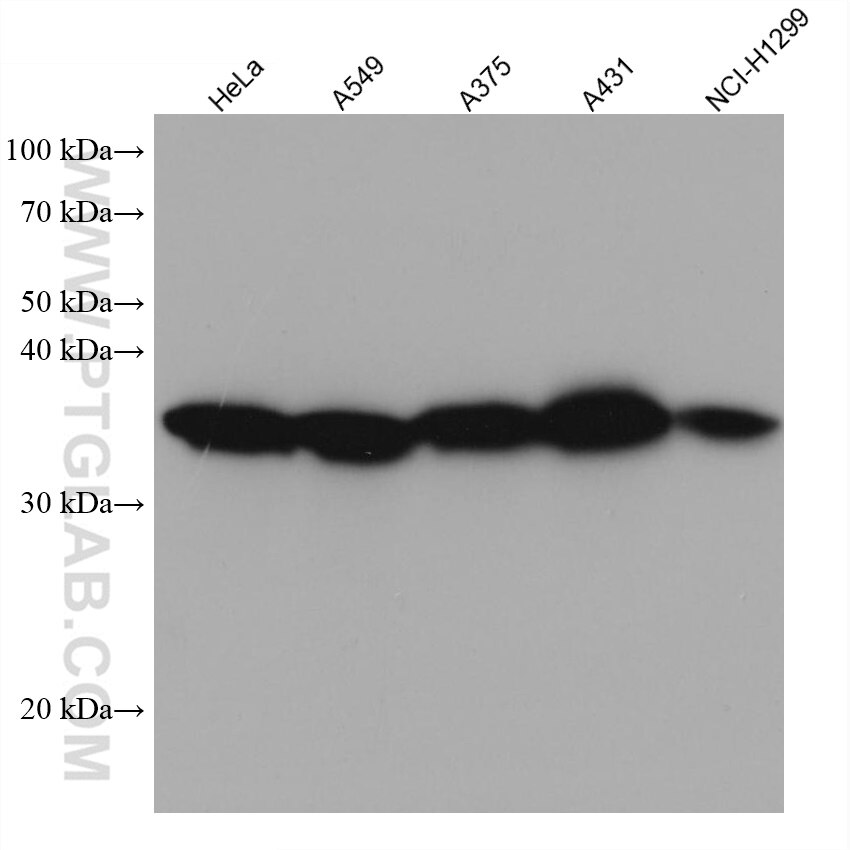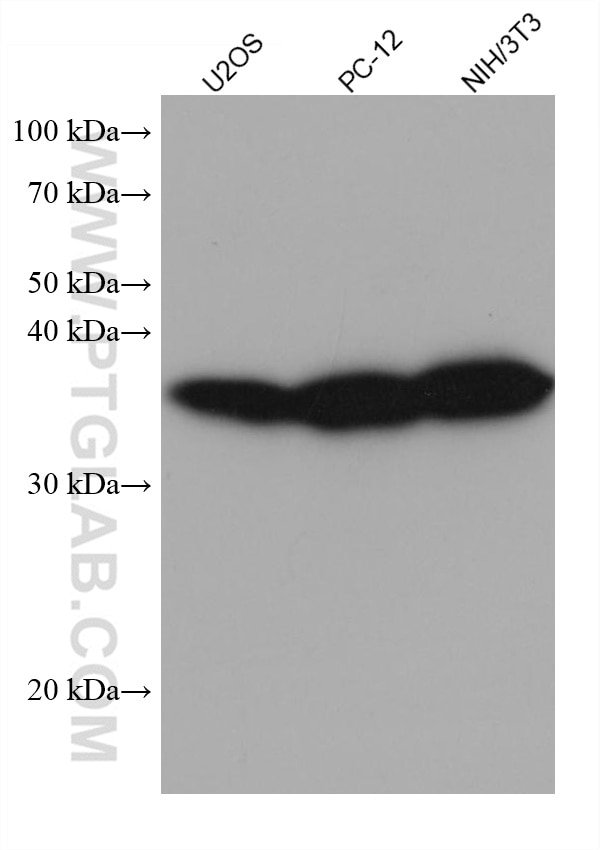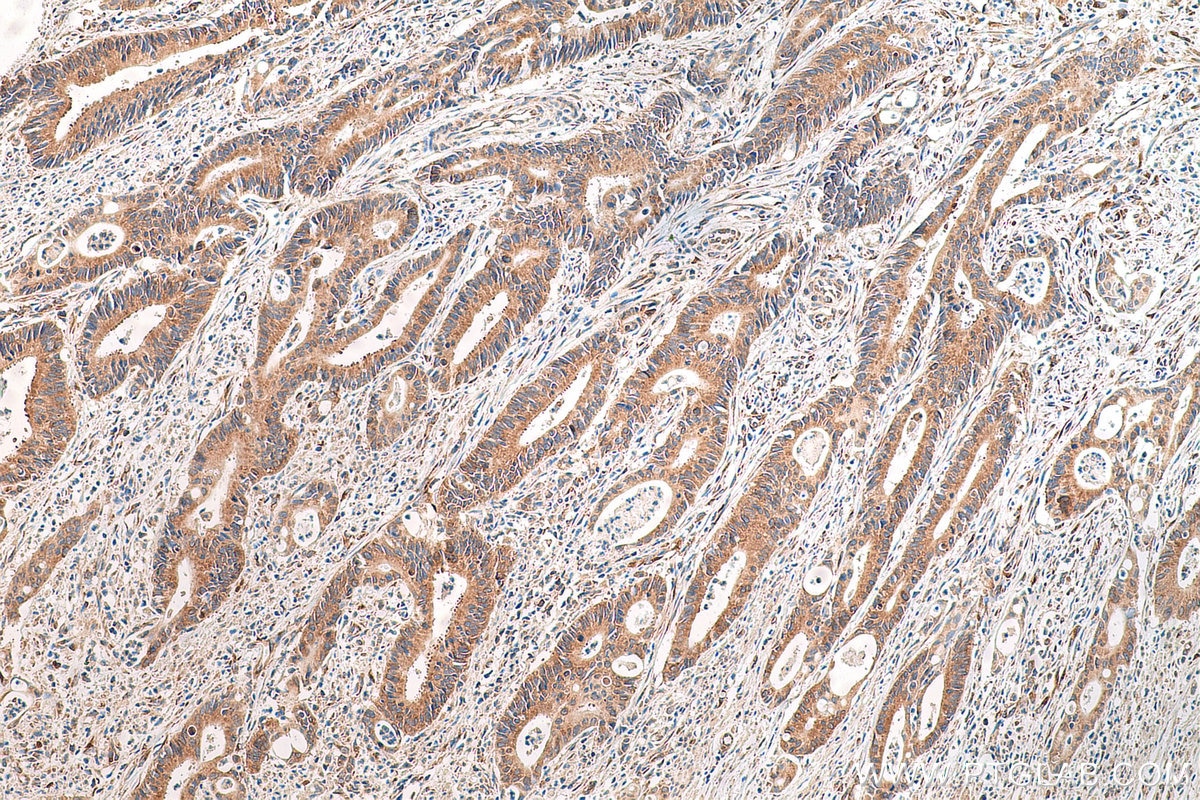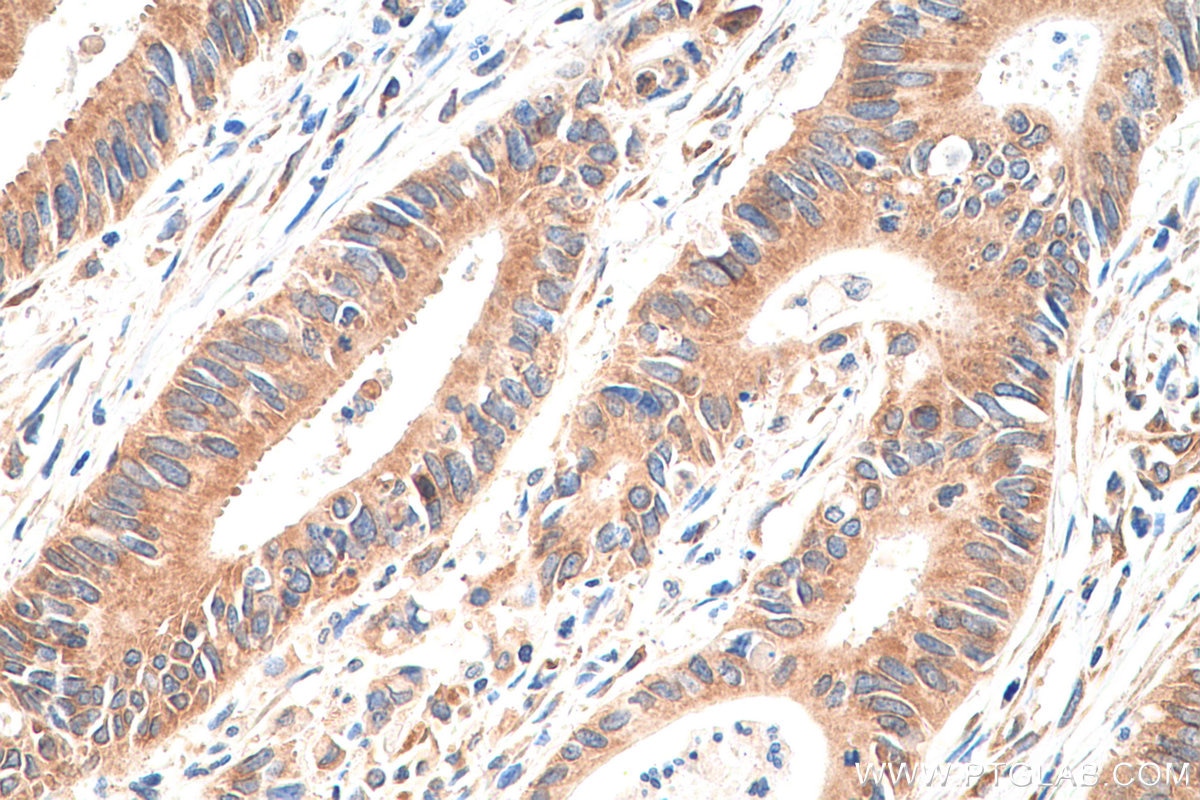Tested Applications
| Positive WB detected in | HeLa cells, U2OS cells, A549 cells, A375 cells, A431 cells, NCI-H1299 cells, PC-12 cells, NIH/3T3 cells |
| Positive IHC detected in | human colon cancer tissue Note: suggested antigen retrieval with TE buffer pH 9.0; (*) Alternatively, antigen retrieval may be performed with citrate buffer pH 6.0 |
Recommended dilution
| Application | Dilution |
|---|---|
| Western Blot (WB) | WB : 1:5000-1:50000 |
| Immunohistochemistry (IHC) | IHC : 1:200-1:800 |
| It is recommended that this reagent should be titrated in each testing system to obtain optimal results. | |
| Sample-dependent, Check data in validation data gallery. | |
Published Applications
| WB | See 1 publications below |
Product Information
68056-1-Ig targets RPLP0 in WB, IHC, ELISA applications and shows reactivity with Human, Mouse , Rat samples.
| Tested Reactivity | Human, Mouse , Rat |
| Cited Reactivity | human, rat |
| Host / Isotype | Mouse / IgG1 |
| Class | Monoclonal |
| Type | Antibody |
| Immunogen |
CatNo: Ag1829 Product name: Recombinant human RPLP0 protein Source: e coli.-derived, PGEX-4T Tag: GST Domain: 1-317 aa of BC009867 Sequence: MPREDRATWKSNYFLKIIQLLDDYPKCFIVGADNVGSKQMQQIRMSLRGKAVVLMGKNTMMRKAIRGHLENNPALEKLLPHIRGNVGFVFTKEDLTEIRDMLLANKVPAAARAGAIAPCEVTVPAQNTGLGPEKTSFFQALGITTKISRGTIEILSDVQLIKTGDKVGASEATLLNMLNISPFSFGLVIQQVFDNGSIYNPEVLDITEETLHSRFLEGVRNVASVCLQIGYPTVASVPHSIINGYKRVLALSVETDYTFPLAEKVKAFLADPSAFVAAAPVAAATTAAPAAAAAPAKVEAKEESEESDEDMGFGLFD Predict reactive species |
| Full Name | ribosomal protein, large, P0 |
| Calculated Molecular Weight | 34 kDa |
| Observed Molecular Weight | 34 kDa |
| GenBank Accession Number | BC009867 |
| Gene Symbol | RPLP0 |
| Gene ID (NCBI) | 6175 |
| RRID | AB_2918797 |
| Conjugate | Unconjugated |
| Form | Liquid |
| Purification Method | Protein G purification |
| UNIPROT ID | P05388 |
| Storage Buffer | PBS with 0.02% sodium azide and 50% glycerol, pH 7.3. |
| Storage Conditions | Store at -20°C. Aliquoting is unnecessary for -20oC storage. 20ul sizes contain 0.1% BSA. |
Protocols
| Product Specific Protocols | |
|---|---|
| IHC protocol for RPLP0 antibody 68056-1-Ig | Download protocol |
| WB protocol for RPLP0 antibody 68056-1-Ig | Download protocol |
| Standard Protocols | |
|---|---|
| Click here to view our Standard Protocols |
Publications
| Species | Application | Title |
|---|---|---|
Biomolecules Dietary Soy Prevents Alcohol-Mediated Neurocognitive Dysfunction and Associated Impairments in Brain Insulin Pathway Signaling in an Adolescent Rat Model. | ||
Life Sci Alliance Transcriptional regulators ensuring specific gene expression and decision-making at high TGFβ doses |










